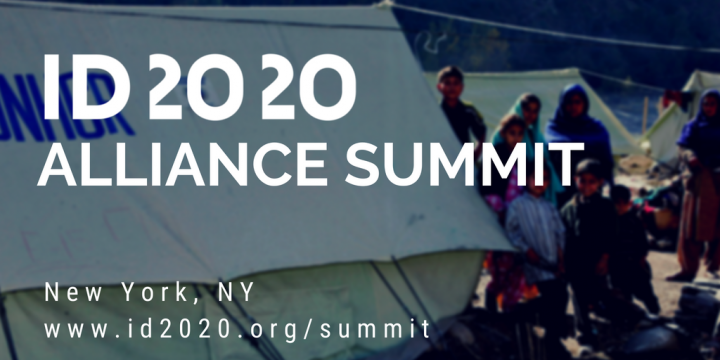
We are very excited to announce that the ID2020 Alliance will host its annual Summit on September 14 in New York City at Convene and the United Nations. The focus of this year’s Summit will be on defining a “good” digital identity, including the complementarity between government-issued and user-centric identity solutions and the technical and non-technical requirements to bring the Alliance’s vision to scale.
The event will be sponsored by UN Office of Information Communications Technology (OICT), the UN Refugee Agency (UNHCR), the International Telecommunication Union (ITU) and the Consulate General of Denmark in New York and will host more than 20 distinguished panelists and speakers, including technology innovators, policy leaders, humanitarians and development specialists.
During the Summit, ID2020 will also present a manifesto of principles jointly written by partners in the ID2020 Alliance and in consultation with UNHCR. First and foremost among those principles is the fundamental belief that identity is a universal human right, and that all individuals must have the ability to prove and assert who they are, without reliance on any single government or institution.
The conference will also announce ID2020’s first two pilot projects, to be launched later this year, with leading implementing partners.
Karl Steinacker of UNHCR noted: “As in previous years, UNHCR supports the third ID2020 Annual Summit because for refugees and forcibly displaced people, the ability to prove one’s identity is essential for ensuring opportunity, livelihood, and most importantly, dignity. We are facing a critical moment: New technologies should be calibrated so that they add value to humanitarian efforts. In terms of identity specifically, people who have been historically excluded, marginalized, and entirely off-the-grid in the global system should now be empowered to establish and re-establish themselves thanks to advanced technological tools and innovative rules and regulations that keep pace with technological development.”
Atefeh Riazi, Assistant Secretary-General and Chief Information Technology Officer of OICT echoed Mr. Steinacker, and added: “Modernization, transformation and innovation on the technology front is critical to improving UN service delivery. Digital identity would be a major step forward in providing a solution to this issue.”
One of the key themes of this year’s conference is the complementarity between state-based and user-centric or “self-sovereign” digital identity systems. Ambassador Anne Dorte Riggelsen, Consul General of Denmark In New York, noted that “building safe, secure, and privacy-ensuring ways for citizens to identify themselves online is critical to improved service delivery from governments, non-government entities, and the private sector. As Denmark marks the 50th anniversary of our digital identity system known as CPR, we can take stock of our role as a global leader in digital government. But we also recognize that the shift to digital did not come easily. The Danish government has many lessons to offer in terms of engaging citizens and advocating for greater adoption of digital solutions, particularly on the identity front. We are thrilled to be able to work with the ID2020 Alliance and partners, and co-host this Summit.”
“ITU international standards provide the technical underpinnings of Identity Management,” said Chaesub Lee, Director of the ITU Telecommunication Standardization Bureau. “ITU’s wealth of experience in Identity Management standardization and collaboration with ID2020 will benefit the more than one billion people still without reliable means of proving their identity.”
Read more about ID2020’s 2018 Summit at https://id2020.org/summit
About the ID2020 Alliance
The ID2020 Alliance is an innovative public-private partnership committed to improving lives through digital identity. The Alliance brings together multinational institutions, nonprofits, philanthropy, business, and governments to set the technical standards for a safe, secure, and interoperable digital identity that is owned and controlled by the user. It funds high-impact pilot projects that bring digital identity to vulnerable populations, and uses the data generated to find scalable solutions and inform public policy. Partners include Accenture, FHI360, Gavi, the Vaccine Alliance, Hyperledger, IDEO.org, iRespond, Kiva, Mercy Corps, Microsoft, Simprints, and United Nations ICC.
Contact: [email protected]
